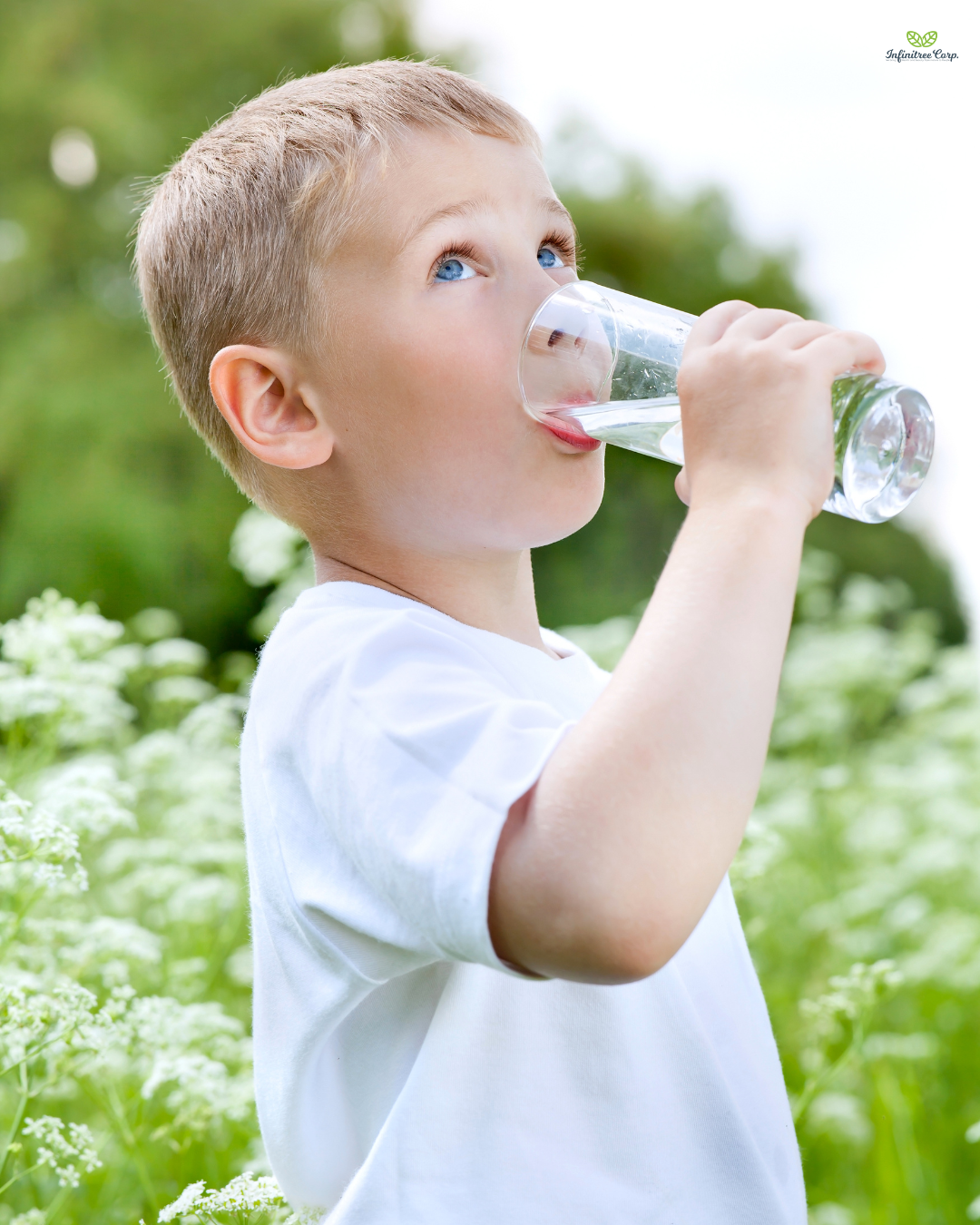
The Power of Hydration Habits: Morning Water Routines for Kids
InfinitreeEditor.Jo
How One Glass Transformed My Son’s Mornings
Last winter, my 9-year-old son, Lucas, began each school day sluggish and irritable—he’d slurp a small juice box then rush out the door. One morning, after reading about hydration, I dared him to swap that juice for a full glass of water. Within two days, he reported feeling “more awake.” By week two, his teacher noted improved focus, and Lucas said he actually looked forward to his morning water ritual. That simple switch revealed a powerful truth: starting the day with water can change everything.
The Problem: Morning Dehydration Is More Common Than You Think
Even a mild dehydration of 2% body weight can impair cognitive function, mood, and energy. Yet surveys show over 60% of children don’t meet daily water intake recommendations—and mornings are the toughest time. After 8–10 hours without fluids, kids wake up already behind on hydration. Combine that with sugary breakfasts, and the body struggles to catch up—leading to:
-
Brain fog in early classes
-
Constipation or sluggish digestion
-
Nighttime cramping or restless legs
-
Weaker immune responses
-
Slower recovery from sports
Schools and parents often focus on lunch- and snack-time hydration, but that first glass of water sets the stage for everything that follows.
The Science: Why Morning Water Matters for Growing Bodies
💧 1. Cellular Reboot After Sleep
Overnight, the body repairs and detoxifies—processes that need water to carry away waste and deliver nutrients. When kids hydrate first thing, they kick-start cellular metabolism, supporting:
-
Optimal nutrient uptake (calcium, magnesium, zinc)
-
Efficient removal of metabolic byproducts
-
Balanced blood volume and pressure for brain perfusion
🧠 2. Cognitive & Mood Boost
Proper hydration improves brain oxygenation and neurotransmitter balance. Studies show kids who drink water in the morning perform better on memory and attention tests, and report less anxiety and irritability.
🦴 3. Bone & Growth Hormone Support
Water influences the viscosity of blood and lymph—critical for transporting growth-supporting hormones (like HGH) to target tissues. Hydrated cells respond better to hormonal signals that drive bone lengthening during sleep and the active hours that follow.
🚀 4. Digestion & Appetite Regulation
A glass of water helps “wake up” the digestive tract, stimulating peristalsis and preparing the stomach for nutrient absorption. Well-hydrated kids are less prone to overeating sugary snacks later in the morning, supporting stable blood sugar and growth.
The Solution: Build a Simple Morning Hydration Ritual
Creating a morning water habit is straightforward—no special gear needed. The goal is one full glass (6–8 ounces) within 15 minutes of waking, followed by sips throughout the morning.
Key principles:
-
Consistency over quantity—daily practice builds lasting habits.
-
Timing—aim for water before breakfast or juice.
-
Variety—flavored water (fruit slices) can help picky kids.
Practical Steps: Your 5-Point Morning Water Routine
| Step | Action | Why It Works |
|---|---|---|
| 1 | Glass at Bedside – Place a prefilled glass or bottle by their bed | Removes barriers: no running to kitchen first thing |
| 2 | Water First, Then Light Movement – Drink, then stretch or walk to bathroom | Stimulates circulation and alertness |
| 3 | Flavor It Naturally – Add cucumber, berries, or a slice of lemon | Encourages kids who don’t like plain water |
| 4 | Pair with Affirmation – “I hydrate to grow strong” | Builds mind-body connection and motivation |
| 5 | Track with Fun Chart – Push a sticker on a morning water calendar | Reinforces consistency and gives a sense of pride |
Expanded Tips:
-
Use a Fun Water Bottle: Let kids choose a reusable bottle with their favorite character or color.
-
Morning “Hydration Alarm”: Set a friendly reminder on their device or a kitchen timer.
-
Include Hydrating Foods: Pair water with high-water foods like orange slices or watermelon cubes for extra boost.
-
Lead by Example: Parents drinking water alongside kids creates positive peer pressure.
-
Reward Milestones: After a week of consistent morning hydration, celebrate with a family smoothie session.
Overcoming Common Objections
-
“My child says they ‘aren’t thirsty’.”
– Explain that thirst lags behind actual dehydration. Encourage sipping as a starting habit until they feel natural thirst. -
“They prefer juice or milk.”
– Suggest diluting juice half-and-half with water at breakfast so pure water becomes more familiar. -
“We’re always rushing.”
– Keep a small bottle portable—kids can sip on the way to school or pack it in their backpack.
Building on the Morning Ritual: All-Day Hydration
-
Mid-morning Check-in: A 1–2 ounce sip every 30 minutes.
-
Water-rich Snacks: Yogurt, fruit cups, cucumber sticks.
-
Hydration Stations: Refill stations at home and school make taking sips easy.
-
Hydration Breaks: Tie to transitions—after recess, between classes.
Conclusion & Call to Action
Morning hydration isn’t a fad—it’s a foundational health habit that supercharges growth, cognition, digestion, and mood. By simply shifting that first drink to plain water, you equip your child’s body for success throughout the day.
💧 Ready for a growth boost? Pair your child’s new water habit with Opti-Up Alpha Plus, our all-in-one growth supplement featuring L-Arginine, collagen, calcium, vitamin D, zinc, and more—designed to support growing bodies from the inside out.
Start tomorrow: a full glass of water on the bedside, a morning stretch, and watch your child thrive.
Disclaimer: This article is for informational purposes only and does not constitute medical advice. Always consult your child’s healthcare provider before making significant changes to their diet or supplement routine.







